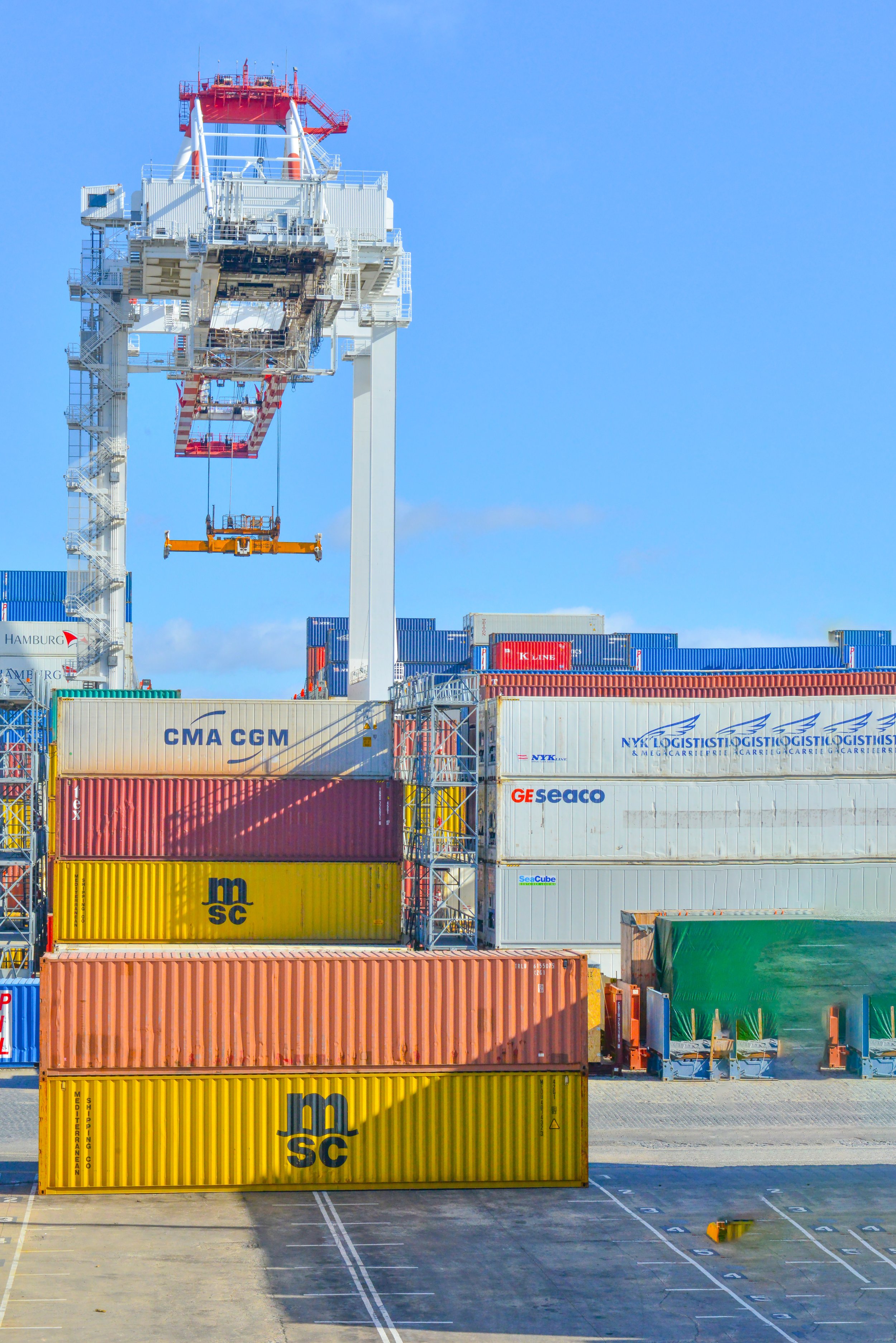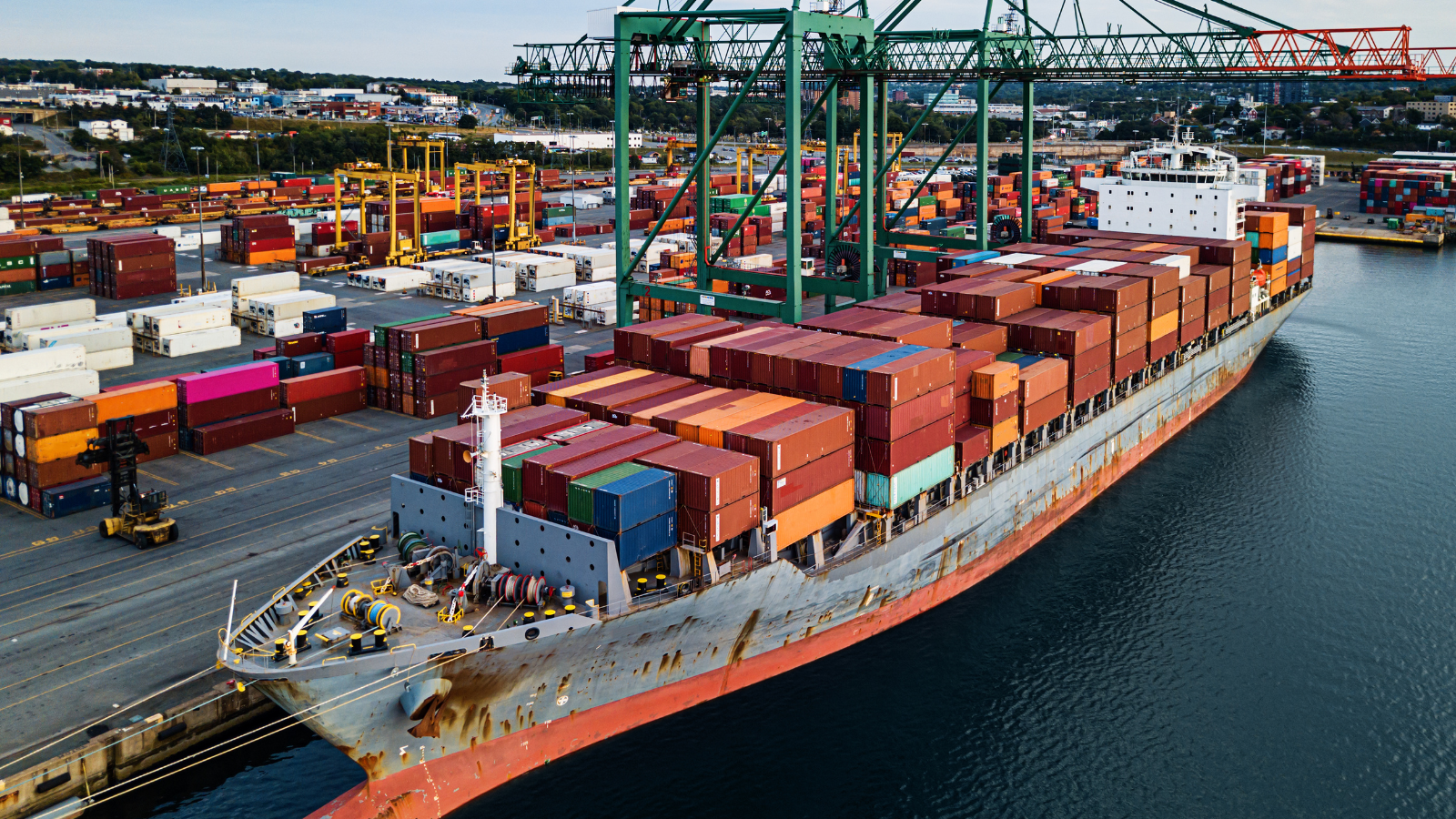Supreme Court Decision Impacts Labor Dynamics at Port of Charleston
The U.S. Supreme Court declined to hear a case involving South Carolina’s ports authority, leaving intact a ruling that mandates the Port of Charleston to employ an all-union labor force at a new container terminal. This decision follows a lengthy dispute over labor regulations at the site, disappointing hopes in South Carolina and Georgia, both right-to-work states, to avoid the International Longshoremen’s Association while expanding cargo-handling operations at major ports.
Barbara Melvin, CEO of the South Carolina Ports Authority, expressed disappointment and pledged to collaborate with the union to resolve the impasse, which has hindered operations at the first major U.S. container terminal constructed in years. The ruling has significant implications for labor dynamics and port expansion plans across the region.
WHY IS THIS IMPORTANT?
This ruling could throw off our cargo-handling routines. It's a big red flag waving in our faces, telling us we need to really get the lowdown on labor rules and how they mess with our port work. It’s also a reminder to all of us in the business to keep our ears to the ground about any legal updates.
🔥 OUR HOT TAKE?
This is a big ol' pot boiling over, especially for those who are all about those right-to-work policies in South Carolina and Georgia. The ruling says they need to use all-union workers at the new container location, even though that goes against the states' labor laws and throws a wrench in plans to expand cargo handling.
With the Port of Charleston now required to go all-union, this could be seen as a setback for the states' efforts to chart their own course on labor regulations. Barbara Melvin's pledge to work with the union might smooth things over, but this ruling does set a precedent that could ripple through labor dynamics at ports across the region.
It's a tough pill to swallow for those pushing for more flexibility in the industry.
The City of Baltimore is holding the owner and manager of the cargo ship responsible for the tragic collapse of the Francis Scott Key Bridge last month.
Last month, a major incident occurred when Baltimore's Key Bridge, a crucial artery for transit and shipping, was struck by a cargo ship and collapsed.
The Unified Command, a coalition involving the U.S. Coast Guard, U.S. Army Corps of Engineers, and other key agencies, has started a crucial phase in the aftermath of the Baltimore bridge collapse.
Big news in the world of engineering and transportation: the collapse of Baltimore's Francis Scott Key Bridge has experts pointing fingers at structural failures.
The U.S. Supreme Court declined to hear a case involving South Carolina’s ports authority, leaving intact a ruling that mandates the Port of Charleston to employ an all-union labor force at a new container terminal.
On New Year's Day, the Port of Virginia achieved a significant milestone by becoming the first U.S. East Coast seaport to operate entirely on 100% clean power, accomplishing its goal well ahead of the planned 2032 timeline.
Maersk is investing over $500 million to expand its supply chain infrastructure in Southeast Asia to support the region's growth as a global production and consumption hub.
The United States has announced a $553 million project to construct a deep-water shipping container terminal in Sri Lanka's Port of Colombo.
China has achieved a remarkable feat by handling over 200 million TEUs (Twenty-foot Equivalent Units) in container throughput from January to August 2023, showcasing its robust maritime strength with a 4.8% year-on-year increase.
The California Air Resources Board (CARB) has issued a mandate that tugboat operators must upgrade their engines with unapproved Diesel Particulate Filters (DPFs) within six months.
Rail freight from Canada to the U.S. has experienced a continuous decline, with a 12% decrease reported last week, according to the Association of American Railroads.
A cargo ship carrying cars remains ablaze near a Dutch bird habitat, and firefighters and salvage crews are waiting for the flames to subside before attempting to board the vessel.
One person has died, and several others have been injured in a major fire that broke out on a car carrier in the North Sea off the Netherlands.
Port Houston is embarking on a transformative journey by relocating its administrative office to the vibrant East River mixed-use development in Houston's historic Fifth Ward.
Truck-as-a-Service (TaaS) startup WattEV has opened its first public charging depot at the Port of Long Beach, providing charging services to all truck operators rather than just exclusive fleets.
The Port of Oakland experienced a decline in total container volume in June 2023 compared to the same month last year.
The freight industry is grappling with inflationary pressures, including labor cost increases and reduced consumer spending
The 13-day labor strike at the West Coast ports in Canada has ended, as Canada’s Labor Minister and Transport Minister on Twitter announced.
After 13 days of closure, the container shipping ports of Vancouver and Prince Rupert in British Columbia, Canada, are set to reopen soon following the resolution of a labor dispute.
The Port of Los Angeles experienced its fourth consecutive month of rising cargo volumes in June, reaching the highest level since July 2022.
The ongoing strike at Canadian West Coast ports is causing a significant impact on freight rail cargo entering the United States, according to weekly rail trade data from the Association of American Railroads (AAR).
Canadian Labor Minister Seamus O'Regan has reported progress in negotiations to end the strike by dockworkers at major Canadian ports, including Vancouver and Prince Rupert.
The Global Port Tracker report indicates that import cargo volume at major container ports in the United States is expected to increase towards a peak in August.
A union strike has brought container terminals at Canada's West Coast ports to a halt, causing significant disruptions to supply chains.
California Governor Gavin Newsom has unveiled a comprehensive investment plan of over $1.5 billion to enhance the state's supply chain infrastructure.
Two containerships originally bound for the Port of Vancouver have been redirected to the Port of Seattle as labor strikes at West Coast ports in Canada continue for the sixth day.
A prolonged strike by dockworkers on Canada's west coast has raised concerns among business groups about the country's economy and reputation.
The Port of Nagoya, Japan's largest maritime port, fell victim to a ransomware attack allegedly carried out by a Russian cybercriminal group, causing significant disruptions to cargo operations.
The International Longshore & Warehouse Union (ILWU) Canada's Longshore Division has officially begun a strike, impacting West Coast ports in Canada, including Vancouver and Prince Rupert.






























Medical experts are warning that a prolonged strike at ports along the East and Gulf coasts could disrupt the supply of life-saving medications.